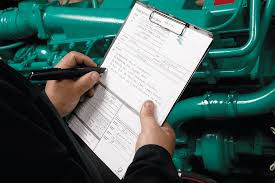Diesel Generator Fuel Consumption: What You Need to Know
- Liam Hughes
- Sep 5
- 3 min read
When people search for diesel generator fuel consumption, they are usually trying to answer one key question: how many litres of fuel will my generator use per hour? Since diesel costs are the biggest ongoing expense of running a generator, understanding usage rates is essential before buying or operating a set.
Generators are designed to run at a fixed engine speed (typically 1,500 rpm in 50 Hz markets like the UK), which means their fuel consumption is closely linked to the electrical load you place on them. The heavier the load, the more litres per hour the engine will burn. To get a realistic idea of costs, it helps to look at typical consumption figures across common generator sizes.

Typical Diesel Generator Fuel Consumption (Litres per Hour)
The following chart shows approximate consumption at different load levels. Figures are averages across leading engine manufacturers and are intended as a guide only - real-world results vary by engine brand, site conditions, and maintenance.
Generator Size | 25% Load | 50% Load | 75% Load | 100% Load |
8 kW / 10 kVA | 1 L/hr | 1 L/hr | 2 L/hr | 3 L/hr |
10 kW / 12 kVA | 1 L/hr | 2 L/hr | 3 L/hr | 4 L/hr |
12 kW / 15 kVA | 1 L/hr | 2 L/hr | 3 L/hr | 4 L/hr |
16 kW / 20 kVA | 1 L/hr | 3 L/hr | 4 L/hr | 5 L/hr |
20 kW / 25 kVA | 2 L/hr | 3 L/hr | 5 L/hr | 6 L/hr |
24 kW / 30 kVA | 2 L/hr | 4 L/hr | 5 L/hr | 7 L/hr |
32 kW / 40 kVA | 3 L/hr | 5 L/hr | 8 L/hr | 10 L/hr |
40 kW / 50 kVA | 3 L/hr | 6 L/hr | 9 L/hr | 12 L/hr |
60 kW / 75 kVA | 5 L/hr | 9 L/hr | 14 L/hr | 19 L/hr |
80 kW / 100 kVA | 7 L/hr | 12 L/hr | 18 L/hr | 25 L/hr |
120 kW / 150 kVA | 8 L/hr | 16 L/hr | 24 L/hr | 32 L/hr |
160 kW / 200 kVA | 10 L/hr | 20 L/hr | 30 L/hr | 40 L/hr |
200 kW / 250 kVA | 13 L/hr | 25 L/hr | 38 L/hr | 50 L/hr |
280 kW / 350 kVA | 19 L/hr | 38 L/hr | 56 L/hr | 75 L/hr |
400 kW / 500 kVA | 27 L/hr | 53 L/hr | 80 L/hr | 106 L/hr |
640 kW / 800 kVA | 43 L/hr | 86 L/hr | 129 L/hr | 172 L/hr |
800 kW / 1000 kVA | 60 L/hr | 110 L/hr | 170 L/hr | 220 L/hr |
1000 kW / 1250 kVA | 65 L/hr | 130 L/hr | 194 L/hr | 259 L/hr |
Why Load Level Matters
Diesel engines are most efficient when operating between 60–80% of their rated capacity. Running too lightly (for example, a 200 kVA generator supplying only a 30 kVA load) wastes fuel and can lead to carbon build-up, known as “wet stacking.” Conversely, consistently running at maximum load increases wear. Choosing a generator sized correctly to your demand keeps fuel consumption - and engine health - in the optimal zone.
Other Factors That Influence Fuel Usage
Engine design and technology – Modern common-rail injection and turbocharging improve efficiency compared with older mechanical engines.
Speed rating – 1,500 rpm sets generally consume less per kVA and last longer than 3,000 rpm models.
Maintenance – Blocked filters, worn injectors, or poor servicing all increase fuel burn.
Fuel quality – Contaminated or low-grade diesel reduces performance and raises usage.
Site environment – Altitude, temperature, and humidity can subtly affect efficiency.
How to Calculate Running Costs
You can work out operating costs using a simple formula:
Fuel consumption (L/hr) x Diesel Price (£/L) = Running Cost per Hour
Example: A 100 kVA generator at 75% load uses ~18 litres per hour at £1.60 per litre, the cost is: 18 × £1.60 = £28.80 per hour. Over 10 hours, that’s nearly £300 of fuel.
Tips to Reduce Diesel Generator Fuel Consumption
Size the generator correctly – match capacity to your expected load.
Use load management – group high-demand tasks together so the generator runs efficiently.
Consider parallel sets – two smaller units can be more fuel-efficient than one oversized set at light loads.
Keep up with servicing – clean filters, healthy injectors, and proper cooling all save diesel.
Upgrade when possible – newer sets with electronic governors and emissions systems deliver better fuel economy.
Conclusion
Fuel consumption is one of the most important factors in generator ownership. A standard 100 kVA diesel generator will typically use between 12–25 litres of fuel per hour depending on load - which can quickly add up to thousands in annual costs. By understanding usage figures, calculating running costs, and applying best-practice efficiency measures, you can keep expenses under control without sacrificing reliable power.

Comments